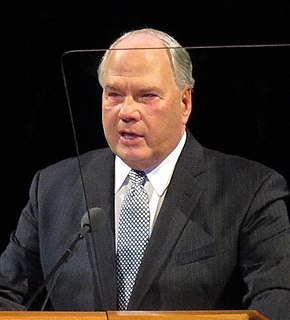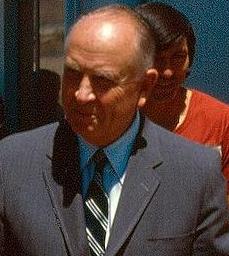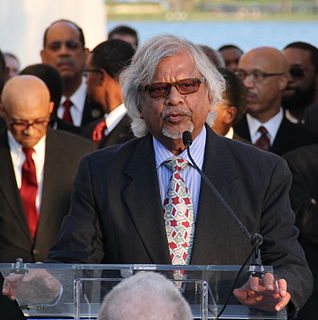A Quote by Luther Burbank
Our lives as we lead them as passed on to others, whether in physical or mental forms, tingeing all future lives together. This should be enough for one who lives for truth and service to his fellow passengers on the way.
Related Quotes
Often the deep valleys of our PRESENT will be UNDERSTOOD only by LOOKING BACK on them from the mountains of our FUTURE experience. Often we can’t see the LORD’S HAND in our lives until long after the trials have passed. Often the most difficult times of our lives are ESSENTIAL building blocks that form the FOUNDATION of our CHARACTER and pave the way to FUTURE opportunity, understanding, and happiness.
Memorial Day is all about celebrating the lives of the men and women who paid the ultimate sacrifice in service to our country. The United States is made great because of their heroism. Their lives are remembered, honored, and celebrated by all of us, including the friends, family, and fellow service members who knew them best.
However good we are, however correctly we seek to lead our lives, tragedies do occur. We can blame others, look for justification, imagine how our lives would have been different without them. But none of that matters: they have happened, and that is that. From this point on, it is necessary that we review our own lives, overcome fear, and begin the process of reconstruction.
“When ye are in the service of your fellow beings ye are only in the service of your God.” Focusing on serving our brothers and sisters can guide us to make divine decisions in our daily lives and prepares us to value and love what the Lord loves. In so doing, we witness by our very lives that we are His disciples. When we are engaged in His work, we feel His Spirit with us. We grow in testimony, faith, trust, and love.
One of the interesting things about the ancient Greeks is that they really didn't have our conception of individual rights. They didn't have our conception of all lives matters. And it was really was true for them, that certain lives matter a lot more than others. It didn't dawn on them that all lives, although different, can be lives of equal mattering. And that is actually something a huge ethical lesson.
The Savior taught His disciples, 'For whosoever will save his life shall lose it: but whosoever will lose his life for my sake, the same shall save it' (Luke 9:24)."I believe the Savior is telling us that unless we lose ourselves in service to others, there is little purpose to our own lives. Those who live only for themselves eventually shrivel up and figuratively lose their lives, while those who lose themselves in service to others grow and flourish—and in effect save their lives.
Today I am amazed at the things our children have done and their wide range of interests. They are all living their lives and not the ones I would have planned for them. But I have learned that their lives are theirs, not mine, and in living their own lives they have given me experiences and an education I would never have had if I'd been fool enough to make them do what I thought they should do.
It's so easy in life for us to receive blessings, many of them almost uncounted, and have things happen in our lives that can help change our lives, improve our lives, and bring the Spirit into our lives. But we sometimes take them for granted. How grateful we should be for the blessings that the gospel of Jesus Christ brings into our hearts and souls. I would remind all of you that if we're ever going to show gratitude properly to our Heavenly Father, we should do it with all of our heart, might, mind, and strength-because it was He who gave us life and breath
Satyagraha is the pursuit of truth. My grandfather believed that truth should be the cornerstone of everybody's life and that we must dedicate our lives to pursuing truth, to finding out the truth in our lives. And so his entire philosophy was the philosophy of life. It was not just a philosophy for conflict resolution, but something that we have to imbibe in our life and live it all the time so that we can improve and become better human beings.
Because we love the Lord, we should be spiritually sensitive to moments when the powerful and important truths of the gospel can be shared with others. Perhaps more importantly, however, we should seek at all times to purify ourselves and to lead such worthy lives that the Light of Christ emanates from us in all that we say and do. Our day-to-day lives should stand as immutable witness of our faith in Christ.
If, as the dowager had said, we are nothing but gene carriers, why do so many of us have to lead such strangely shaped lives? Wouldn't our genetic purpose-to transmit DNA-be served just as well if we lived simple lives, not bothering our heads with a lot of extraneous thoughts, devoted entirely to preserving life and procreating? Did it benefit the genes in any way for us to lead such intricately warped, even bizarre, lives?
God’s definition of success is really one of significance-the significant difference our lives can make in the lives of others. The significance doesn’t show up in won-loss records, long resumes, or the trophies gathering dust on our mantels. It’s found in the hearts and lives of those we’ve come across who are in some way better because of the way we lived.
In the daily lives of most men and women, fear plays a greater part than hope: they are more filled with the thought of the possessions that others may take from them, than of the joy that they might create in their own lives and in the lives with which they come in contact. It is not so that life should be lived.
Peace is not just the absence of war, it is the active presence of a capacity for love and compassion, and reciprocity. It is an awareness that our lives are not to be lived simply for ourselves through expressing our individuality, but we confirm the purpose of our lives through the work of expressing our shared sense of community in a purposeful and practical way; to sustain our own lives we sustain the lives of others - in family, in a community of neighborhoods called a city, and in a community of nations called the world.







































